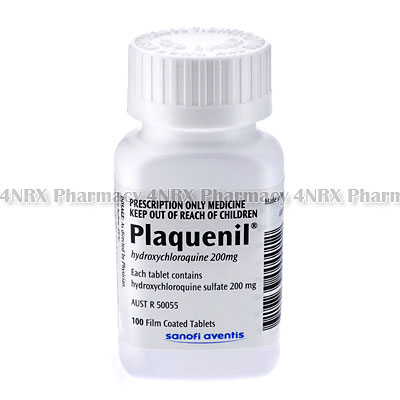 |
Home  Arthritis Arthritis  Plaquenil (Hydroxychloroquine Sulfate) Plaquenil (Hydroxychloroquine Sulfate) |
|
|||||||||
|
Plaquenil (Hydroxychloroquine Sulfate)
What is Plaquenil (Hydroxychloroquine Sulfate) used for? Plaquenil (Hydroxychloroquine Sulfate) is used together with other drugs to treat rheumatoid arthritis and lupus. It belongs to a class of drugs known as disease-modifying antirheumatic drugs, or DMRDs, which help to reduce inflammation caused by arthritis and to reduce skin problems caused by lupus. This drug is also used in the prevention and treatment of malaria. However, it is not effective in treating chloroquine-resistant types of malaria. How should I use Plaquenil (Hydroxychloroquine Sulfate)? Plaquenil (Hydroxychloroquine Sulfate) tablets are taken with food in order to prevent stomach upset. If you are taking this drug to treat lupus or rheumatoid arthritis, you may be directed to take it once or twice per day, or as prescribed by your physician. Your physician may gradually increase your dosage. Patients taking it to prevent malaria should start taking it 2 weeks before traveling, and continue taking it while they are in the area, and for 4 to 8 weeks after they have returned. However, all patients taking this medication should consult their physician before taking this medication so that the correct dosage can be prescribed. What are the side effects of Plaquenil (Hydroxychloroquine Sulfate)? Some side effects may occur as a result of taking Plaquenil (Hydroxychloroquine Sulfate), such as:
You should consult your physician immediately if any of these side effects persist or worsen, or if any other more serious side effects occur, such as back pain, hair loss, skin conditions, eye problems, breathlessness, fever or hallucinations. Please Note Strictly follow all instructions provided to you by your physician or pharmacist while using Plaquenil (Hydroxychloroquine Sulfate). Optimum and safe dosage can differ based on the patient and the condition being treated. As this medication may be unsafe for certain patients, it is essential you always inform your physician if you are pregnant or breastfeeding, as well as if you have any allergies, other illnesses, or ongoing health conditions, and if you are taking any other form of medication, supplements, or herbal products. This medication should never be used with penicillamine. Immediately seek emergency medical care if you have any allergic or hypersensitive reaction. Common signs of a reaction include hives, swelling, skin rashes, chest pains, as well as trouble breathing or swallowing. 
|
|||||||||||||||||